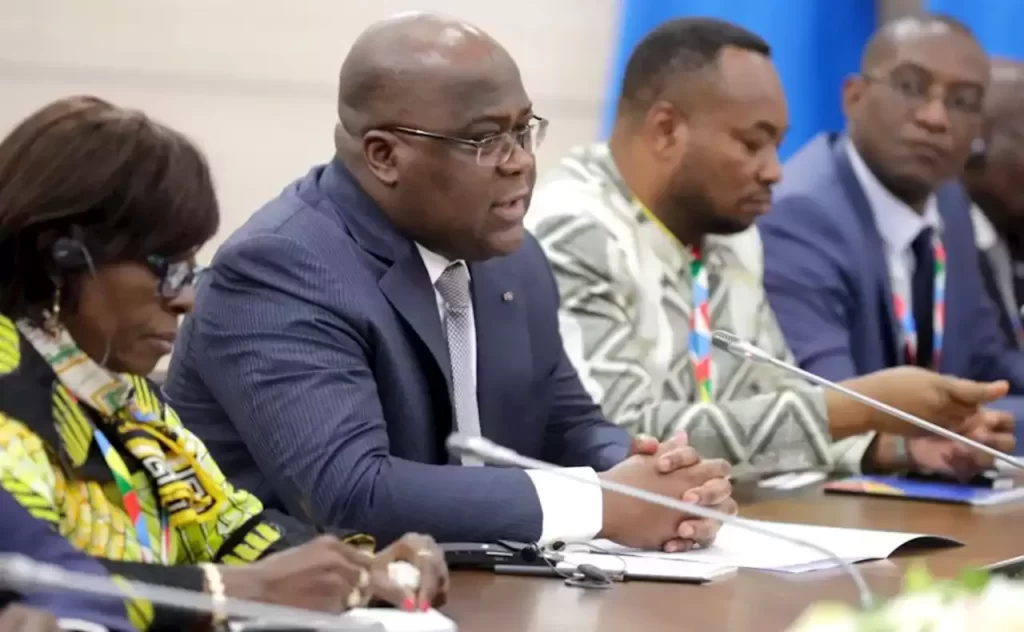Democratic Republic of Congo is still looking for partners for the world’s biggest hydropower project and expects expanded mining investments from the United Arab Emirates as the central African nation prepares for December elections.
While talks have stalled over development of the 44-gigawatt Grand Inga project with Australian billionaire Andrew Forrest and his company, Fortescue Future Industries Ltd., President Felix Tshisekedi told reporters in New York there is interest in the project from other potential partners.
“It’s not impossible that tomorrow we could see a kind of consortium developing around the World Bank, Chinese investors, maybe Europeans,” along with Fortescue, he said on the sidelines of the United Nations General Assembly on Tuesday. Tshisekedi expects to meet this week with Fortescue, which wants to develop a green hydrogen project in Congo. The company declined to comment on Wednesday.
The Congolese leader is looking to position the resource-rich country as a destination for investors seeking climate-change solutions. Besides hydropower, he’s pitching carbon credits to protect the world’s second-largest tropical forest and investment in critical green-energy minerals including copper and cobalt. Congo is the world’s biggest producer of cobalt.
Abu Dhabi-based Primera Group Ltd. will soon increase investments to include those two metals after starting a gold venture with the government in January, Tshisekedi said. The group is also planning a smelter to produce tantalum, tin and tungsten in partnership with a state mining company.
The plans signal an openness to new investors beyond the Chinese and European companies that control most of Congo’s mining and telecoms industries. The UAE could soon offer development programs in education and already provided equipment and training to the nation’s soldiers that helped repel a recent offensive by the M23 rebel group in eastern Congo, he said.
Conflict has plagued resource-rich eastern Congo for decades, and animosity between its government and neighbor Rwanda has raised fears of wider fighting. Congo accuses Rwanda of backing M23, a claim Kigali denies.
Congo’s government is also renegotiating a $6.2 billion minerals-for-infrastructure contract with China that Tshisekedi said would result in “a new adventure” between the two countries. China’s domination of Congo’s copper and cobalt mines has become a concern for Western governments worried about access to key minerals for batteries.
Another concern among Western diplomats ahead of elections has been a recent opposition leader’s murder and arrests of political opponents and a prominent journalist.
Stanis Bujakera, a Jeune Afrique correspondent, was detained this month and accused of allegedly spreading false information about the death of former minister Cherubin Okende Senga in a report by the agency. Bujakera is also deputy publication director of Congo’s Actualite.cd and a Reuters contributor.
“Stanis Bujakera is a young man whom I like very much,” Tshisekedi told reporters. “I regret what happened to him but I cannot obstruct justice and not allow it to shed light” on the killing, he said.
Source: Mining


